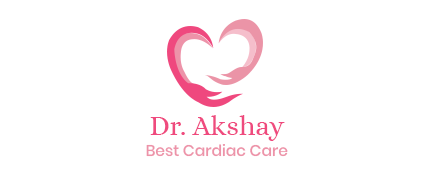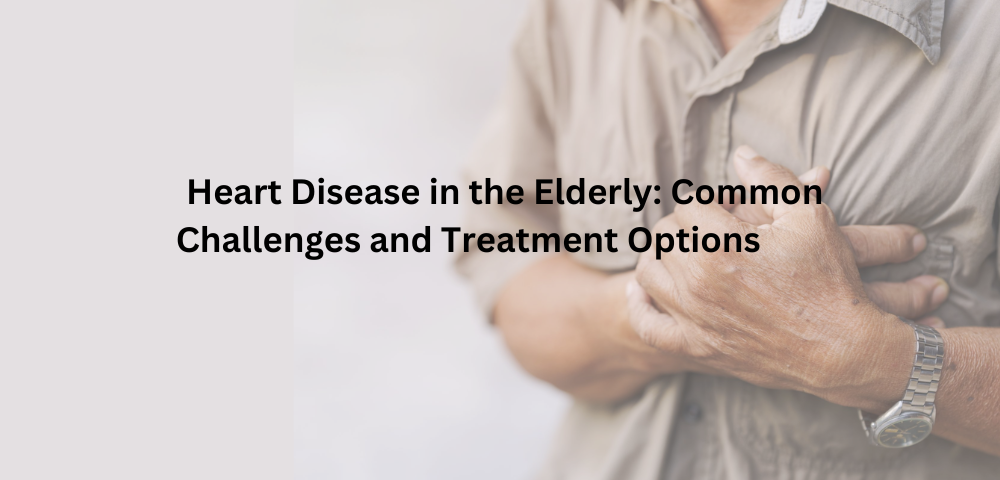Heart disease remains one of the leading causes of death among the elderly. As we age, the risk of developing cardiovascular conditions increases due to changes in the heart and blood vessels. Understanding the challenges and available treatment options is crucial for improving the quality of life for elderly patients.
Common Challenges of Heart Disease in the Elderly
- Age-Related Changes in the Heart
As people age, the heart undergoes structural changes. The walls of the heart may thicken, arteries can stiffen, and the heart’s ability to pump efficiently can decrease. These changes make older adults more susceptible to heart disease. - Coexisting Medical Conditions
Elderly patients often deal with multiple health issues like diabetes, hypertension, and chronic kidney disease. These comorbidities complicate heart disease management, making it essential to adopt a comprehensive treatment approach. - Atypical Symptoms
Heart disease symptoms in older adults can be subtle or different from the classic chest pain associated with heart attacks. Symptoms like fatigue, shortness of breath, or confusion may indicate heart problems but are often overlooked. - Medication Management
Managing multiple medications can be challenging for elderly patients. Drug interactions and side effects are common, requiring careful monitoring by healthcare professionals. - Cognitive Decline and Frailty
Conditions like dementia or general frailty can make it harder for elderly patients to follow treatment plans or recognize symptoms, increasing the risk of complications.
Effective Treatment Options for Elderly Heart Patients
- Lifestyle Modifications
Adopting heart-healthy habits is the cornerstone of managing heart disease. Recommendations include:- A balanced diet low in saturated fats and high in fiber.
- Regular, moderate exercise tailored to the individual’s ability.
- Smoking cessation and limiting alcohol consumption.
- Medications
Various medications help manage heart disease, such as:- Antihypertensives to control blood pressure.
- Statins to lower cholesterol levels.
- Antiplatelet agents to prevent blood clots. Careful monitoring is essential to avoid adverse drug interactions.
- Minimally Invasive Procedures
Advances in cardiology have made minimally invasive procedures safer for elderly patients. Procedures like angioplasty and stent placement help restore blood flow with reduced recovery times. - Pacemaker and ICD Implantation
For patients with arrhythmias or heart blockages, pacemakers or implantable cardioverter-defibrillators (ICDs) can regulate heart rhythms and prevent sudden cardiac arrest. - Cardiac Rehabilitation
A structured program combining exercise, education, and counseling helps elderly patients regain strength and improve heart health after a cardiac event. - Personalized Care Plans
Given the complexity of elderly care, personalized treatment plans that consider the patient’s overall health, cognitive function, and personal preferences are essential.
Preventive Measures
Prevention plays a critical role in managing heart disease in the elderly:
- Regular heart check-ups.
- Monitoring blood pressure and cholesterol levels.
- Managing stress through relaxation techniques.
Summary
Heart disease in the elderly presents unique challenges that require a thoughtful and personalized approach to care. Early detection, lifestyle changes, and appropriate medical treatments can significantly improve the quality of life for elderly heart patients.
If you or a loved one are dealing with heart-related issues, consulting an expert is essential. Dr. Akshay Kashid, a renowned cardiologist specialist in Baner, Pune, offers comprehensive care tailored to the unique needs of elderly heart patients. With his expertise and patient-centered approach, Dr. Kashid ensures the highest standard of cardiac care for the elderly in Pune and surrounding areas.
Take the first step towards better heart health today by consulting with Dr. Akshay Kashid.



